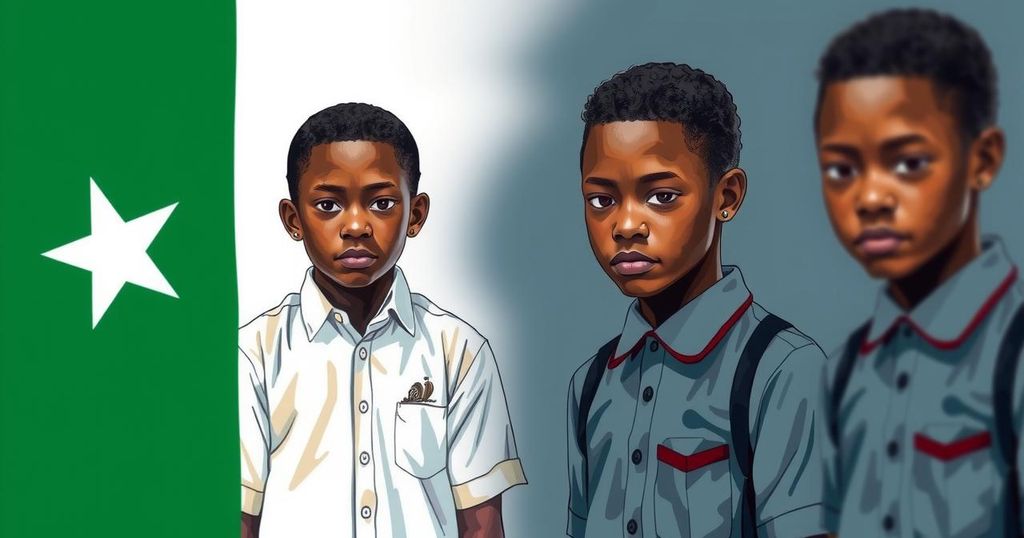President Bola Tinubu has ordered the release of minors arrested during protests over economic hardship in Nigeria. Charges of treason against them will be dropped following public outrage at their arraignment. The protests, which erupted in August, were fueled by rampant inflation and worsening living conditions, leading to at least 22 deaths during clashes with security forces.
Nigeria’s President Bola Tinubu has ordered the immediate release of all minors detained during protests against the rising cost of living, which took place in August. Information Minister Mohammed Idris announced that the treason charges against these minors will be dropped, acknowledging the public outrage following their arraignment in court. A total of 30 minors, along with 76 others, faced serious charges after participating in demonstrations highlighting the dire economic challenges facing the nation.
The protests stemmed from the worsening economic situation in Nigeria, characterized by soaring inflation and a significant cost-of-living crisis. Demonstrators gathered in major cities, including Abuja and Lagos, to express their discontent with government policies that have exacerbated financial hardships. Amnesty International reported that at least 22 individuals lost their lives in clashes with security forces amid these protests.
President Tinubu’s commitment to reforming the economic landscape has been met with mixed responses, particularly given the frustrations over job availability and living conditions for Nigeria’s youth. Alongside this financial turmoil, citizens also face rampant insecurity, with armed groups conducting kidnappings, further complicating the socio-economic landscape.
Tinubu’s administration is under pressure to address these underlying issues while supporting the rights of minors and ensuring public safety. Immediate action towards the release of young detainees reflects a recognition of the need for a more balanced approach to governance and public dissent in the face of growing economic challenges.
In August, widespread protests erupted across Nigeria due to the escalating cost of living, which has reached crisis levels not seen in generations. As inflation soared, citizens expressed their frustrations, demanding economic reforms and better opportunities, particularly for the youth. The government’s heavy-handed response led to significant backlash, especially concerning the treatment of minors arrested during the protests. The situation has highlighted the fragile state of Nigeria’s economy and the urgent need for effective governance and social reforms.
The decision by President Tinubu to release minors charged during the protests signals an important acknowledgement of public concerns regarding the treatment of youth amidst ongoing economic turmoil. It is a critical first step towards addressing the broader issues of economic hardship and civil rights in Nigeria. Moving forward, it remains imperative for the government to not only engage in meaningful reforms but also prioritize the safety and welfare of its citizens in a climate of insecurity and financial distress.
Original Source: www.aljazeera.com






